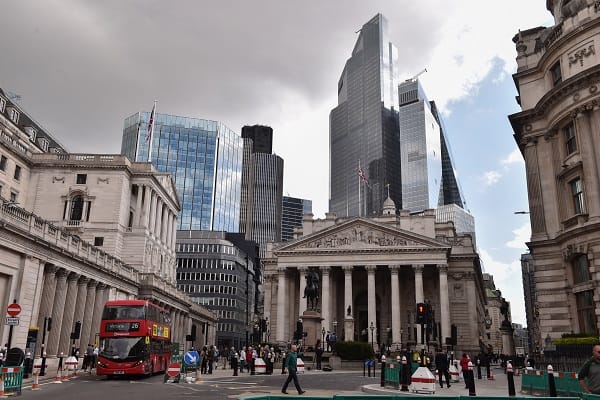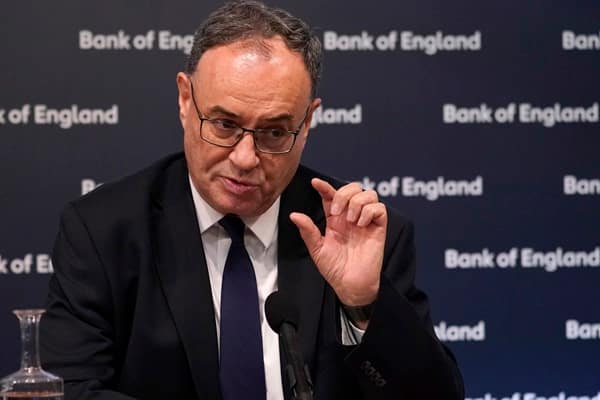Horoscope
Map shows the route of £4,500,000 planned new cycle lane in London

The plans for a new cycle lane through the City of London are set to transform major junctions through the financial area.
The City of London Corporation has proposed to build a £4,500,000 stretch of new cycle lane between Aldgate and Blackfriars.
Campaigners welcomed the plan, saying there is a ‘clear need,’ but that the upgrade should be delivered faster than by 2028 when it is estimated to be completed.
The proposed route would run along St Bodolph Street, Aldgate Square, Leadenhall Street, Cornhill, Bank Junction and Queen Victoria Street before ending at Blackfriars.
The new cycle lane is part of the Corporation’s Cycleways Programme toaim ‘to make the Square Mile a safe, attractive and accessible place for people to cycle.’
Where the City new cycle lane would run

It would run further north almost parallel to the cycle lane from Tower Hill to Victoria Embankment and connect to the TfL Cycple Superhighway 2 at Whitechapel High Street, the Cycleway 6 at New Bridge Street and the Victoria Embankment junction area.
But the London Cycling Campaign has said the plan needs ‘far more work at both ends to truly connect it up.’
Only part of the Queen Victoria Street and roads around Aldgate require protected cycle lanes as these sections exceed 500 vehicles per hour during peak times, the documents presented in October said.
Only Queen Victoria Street between New Bridge Street and Queen Street and the roads around Aldgate are above this threshold.
However, the cycle lane would divert around Aldgate High Street via St Botolph Street as ‘it is not feasible to introduce protected cycle lanes on Aldgate High Street’ because of bus stops, kerbside loading, road widtd and capacity and closely spaced side road junctions, the document noted.
Work on the cyclelane is expected to start in the summer of 2026.
Latest London news
To get the latest news from the capital visit Metro’s London news hub.
How cycling campaigners have reacted
Simon Munk, the LCC’s head of campaigns and community development, said the plan is ‘very welcome’ but it is ‘too slow’ as it is not due to come for a couple of years.
‘If you want a much wider range of cyclists, you need a connected route. People need to get from place A to B without hostility. It will get more women and children cycling,’ he said.
The new cycle lane ‘should be in next week to be honest,’ he said, adding that the City and TfL ‘need to hurry up.’
He said he had concerns over how the cycle lane junctions would be designed.

‘We have great design examples in London, but it seems incredibly difficult to deliver good junctions,’ he told Metro.
He said the design also need to factor in the number cyclists and people’s behaviour.
‘In central London where this route is, we’re seeing similar routes – Embankment and Blackfriars – over capacity, it is chaotic and crowded.’
He said the proposal appears to ‘give up’ at Blackfriars where cyclists encounter a ‘really hostile junction’ and have to merge into ‘already crowded cycle lanes.’
However, he praised the City Corporation for ‘its massively ambitious strategy for cycling.’
‘They recognise there’s a lot more potential for cycling. To get there, this route will be over capacity within weeks. And it is not due to open for years, so we need more and faster,’ he said.
What happens next?
Metro understands the a public consultation will launch within days.
Residents, businesses and any other stakeholders will get a chance to have their say on the proposal.
With a chunk of funding coming from the TfL, the Aldgate-Blackfriars cycleway project was ‘substantially delayed’ because of the impact of the coronavirus pandemic on TfL’s finances, the document said.
While the original completion programme was by 2025, the latest completion date is now estimated to be 2028, the report added.
Get in touch with our news team by emailing us at webnews@metro.co.uk.
For more stories like this, check our news page.
MORE: TfL scraps plans for ‘driverless Tubes’ across London’s transport network
MORE: World’s first YMCA shut down and ‘sold to hotel chain’ in London after 180 years










